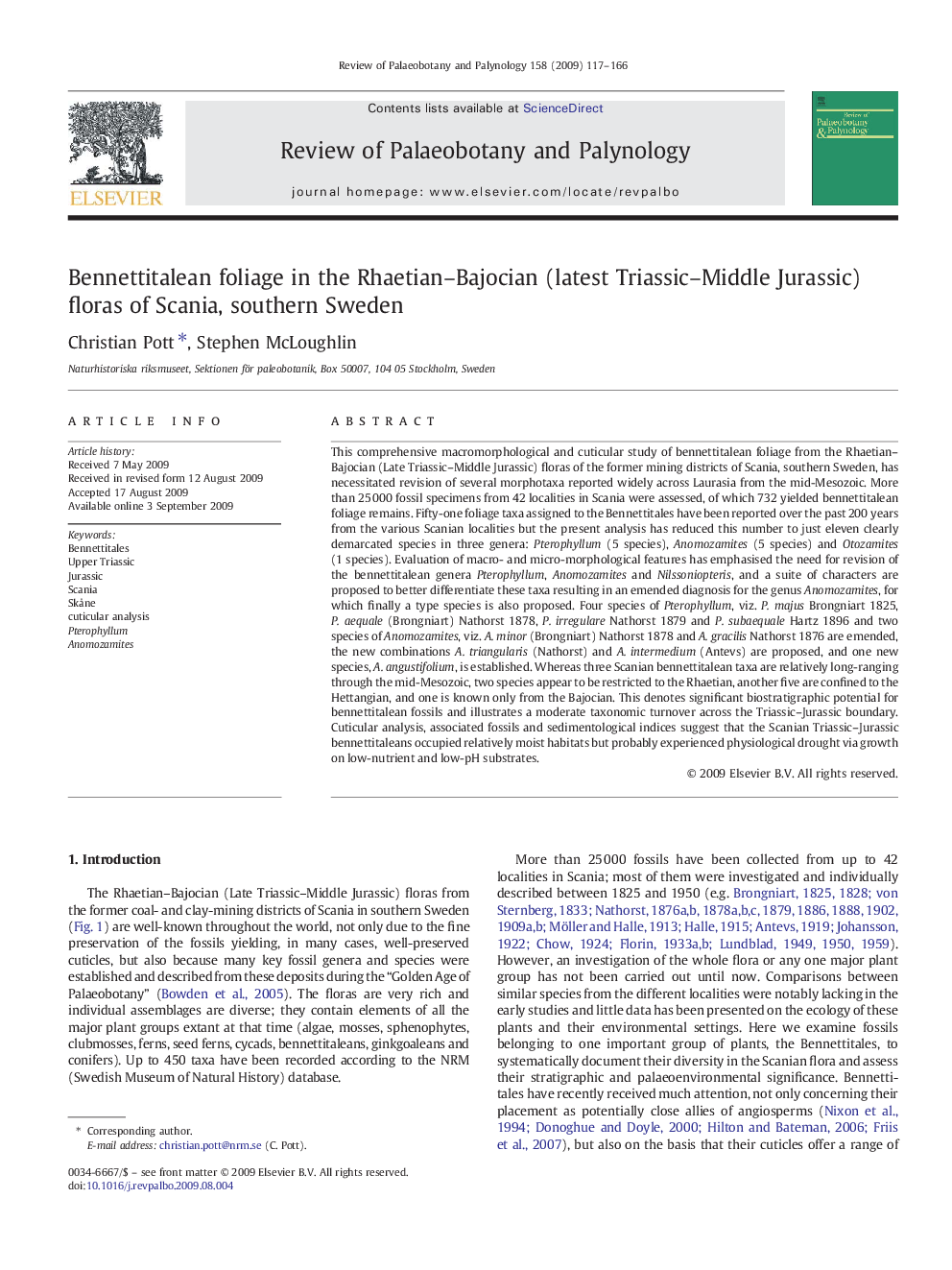| کد مقاله | کد نشریه | سال انتشار | مقاله انگلیسی | نسخه تمام متن |
|---|---|---|---|---|
| 4750755 | 1642551 | 2009 | 50 صفحه PDF | دانلود رایگان |

This comprehensive macromorphological and cuticular study of bennettitalean foliage from the Rhaetian–Bajocian (Late Triassic–Middle Jurassic) floras of the former mining districts of Scania, southern Sweden, has necessitated revision of several morphotaxa reported widely across Laurasia from the mid-Mesozoic. More than 25 000 fossil specimens from 42 localities in Scania were assessed, of which 732 yielded bennettitalean foliage remains. Fifty-one foliage taxa assigned to the Bennettitales have been reported over the past 200 years from the various Scanian localities but the present analysis has reduced this number to just eleven clearly demarcated species in three genera: Pterophyllum (5 species), Anomozamites (5 species) and Otozamites (1 species). Evaluation of macro- and micro-morphological features has emphasised the need for revision of the bennettitalean genera Pterophyllum, Anomozamites and Nilssoniopteris, and a suite of characters are proposed to better differentiate these taxa resulting in an emended diagnosis for the genus Anomozamites, for which finally a type species is also proposed. Four species of Pterophyllum, viz. P. majus Brongniart 1825, P. aequale (Brongniart) Nathorst 1878, P. irregulare Nathorst 1879 and P. subaequale Hartz 1896 and two species of Anomozamites, viz. A. minor (Brongniart) Nathorst 1878 and A. gracilis Nathorst 1876 are emended, the new combinations A. triangularis (Nathorst) and A. intermedium (Antevs) are proposed, and one new species, A. angustifolium, is established. Whereas three Scanian bennettitalean taxa are relatively long-ranging through the mid-Mesozoic, two species appear to be restricted to the Rhaetian, another five are confined to the Hettangian, and one is known only from the Bajocian. This denotes significant biostratigraphic potential for bennettitalean fossils and illustrates a moderate taxonomic turnover across the Triassic–Jurassic boundary. Cuticular analysis, associated fossils and sedimentological indices suggest that the Scanian Triassic–Jurassic bennettitaleans occupied relatively moist habitats but probably experienced physiological drought via growth on low-nutrient and low-pH substrates.
Journal: Review of Palaeobotany and Palynology - Volume 158, Issues 1–2, December 2009, Pages 117–166